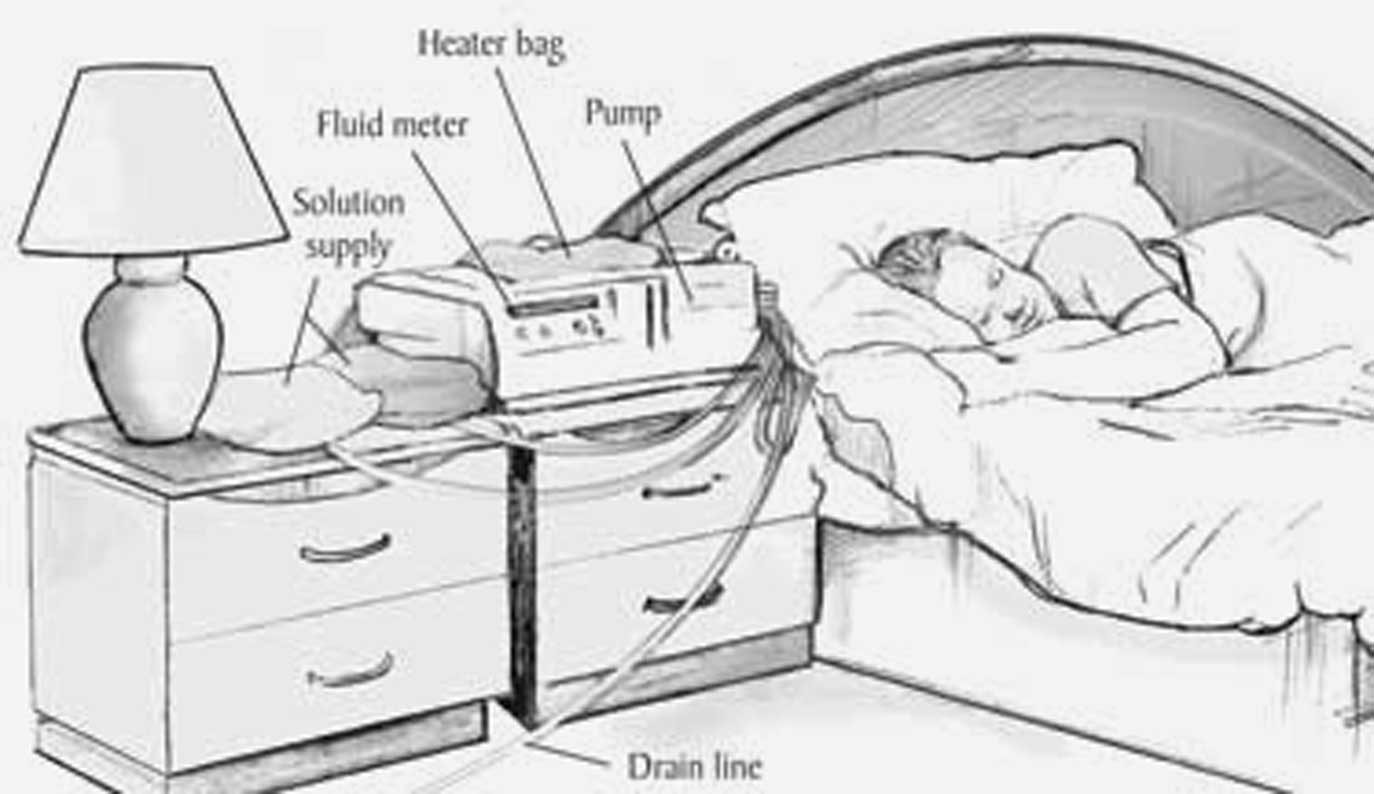A Peritoneal Dialysis Story

Charlie and his wife Mary live in a Unit in Wantirna. They have 4 grown up children with their own children which mean they have 9 grandchildren. Mary is Charlie’s carer.
I believe Charlie is a typical PD person on nocturnal (overnight) dialysis and he finds the machine easy to operate. The machine is portable and only weighs between 4-5 kg.
Although Charlie finds PD good and convenient his doctors now want him to change to haemodialysis (HD). Charlie will reach the 8 year mark on PD in March and he may find himself on haemodialysis soon. Charlie may first need to go onto HD once a week to enable him to adapt to the change in dialysis. A left arm fistula failed 4 years ago and a right arm fistula is working well and ready for HD.
For Charlie PD involves dialysing for 9 hours overnight starting at 10pm and finishing at 7.15am the following day, every night.
Charlie’s PD machine is set up next to his bed on a chest of draws. He begins by priming the machine at about 4pm and then leaves the machine until ready to complete the setting up. He hooks up 4 bags, consisting of 2 bags of 6000mls, 1 bag, 3000 ml and his final bag of 2000 which drains in 1500 ml to run overnight. Then the last 1500 ml stays in his peritoneum cavity until he hooks up again that night. At about 10pm Charlie hooks himself from his tenckhoff catheter onto the now primed lines. These lines flow through the PD machine. A slow drain-out and drain-in of the dialysis fluid occurs while Charlie sleeps. The PD machine controls the flow of dialysis fluid. Charlie has an extension tube which is long enough to enable the drain out fluid to be discharged into the shower, saving him from having to deal with this fluid in the morning.
His tenckhoff catheter is placed on his right side and Charlie sleeps on his left side.
Charlie has a manual to help him trouble shoot any alarms if necessary or he has a 1800 phone number that puts him through to Baxter in Florida.
The main problem Charlie has is the unreliable electricity supply. During January the power failed 4 times. If the power goes off overnight Charlie has to come off the machine, or cannot start to dialyse. One night Charlie could not dialyse due to a power outage, so he and his wife played cards (under candle light) until the power returned at 2.30am. Once back on dialysis Charlie had to still dialyse for the usual 9 hours. Charlie contacted his local politician who noted the issue, and this managed to make the news on channel 7 and channel 2 on the 11th of February. Charlie and Mary only received acknowledgements from their power supplier and from their Local Minister Josh Frydenberg’s office.
Baxter delivers the stock and is helpful by putting it into the back room.
Several years ago Charlie and Mary had a trip to Sydney to visit his sister-in-law. Unfortunately, all did not go well. While there he developed an infection and returned home for treatment
Charlie and Mary spend time with their children and grandchildren. Mary sometimes cooks up a storm and has their family around for lunch. With not all of the family being able to attend and some careful planning they all fit into the Unit. (They always have a busy Christmas which last year his daughter organised.)
Mary continues socialising with friends, while Charlie will spend time on his computer following the soccer or doing internet searches of newspapers and items of interest.
From Charlie Catania as told to Ros Ball with many thanks.